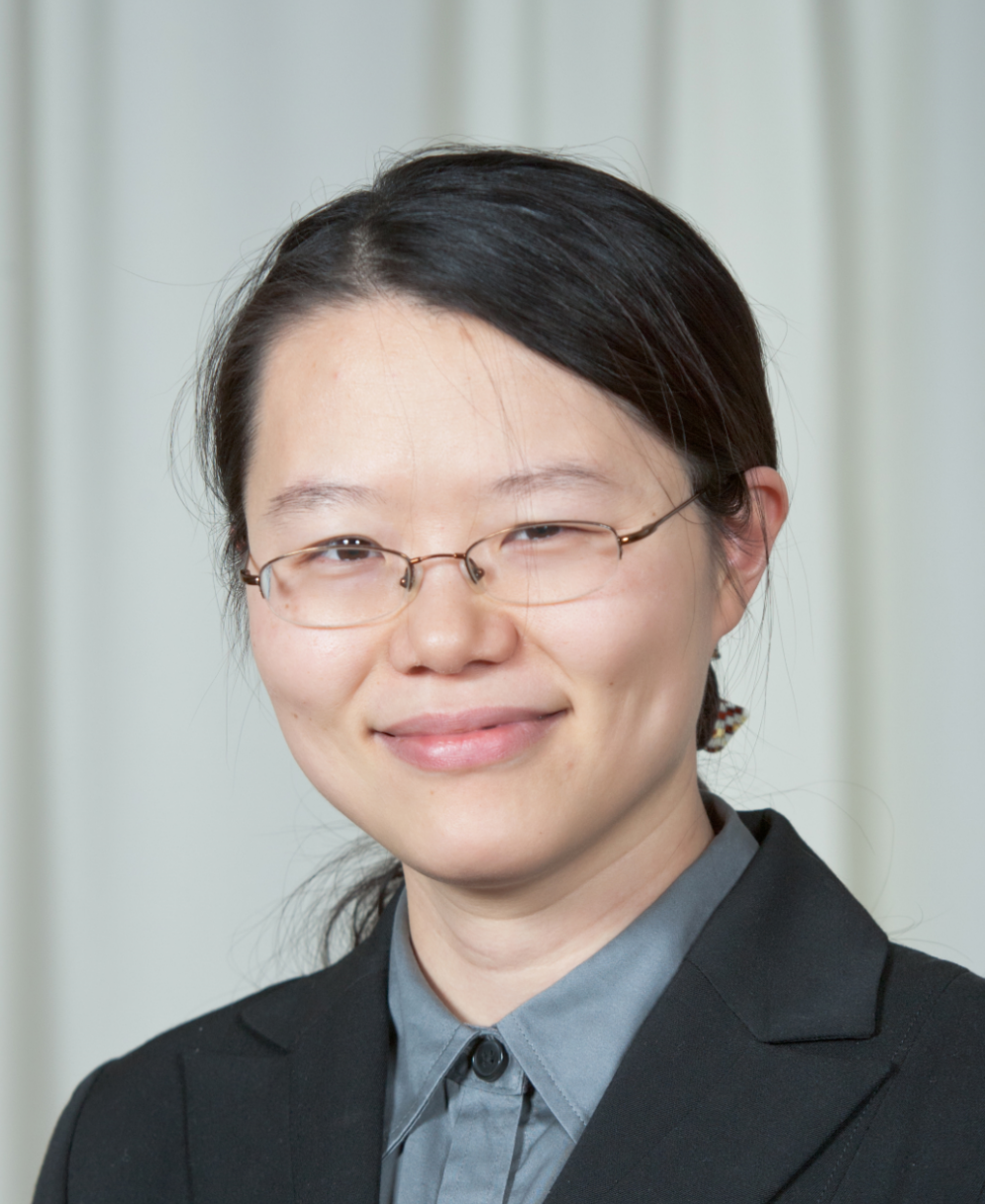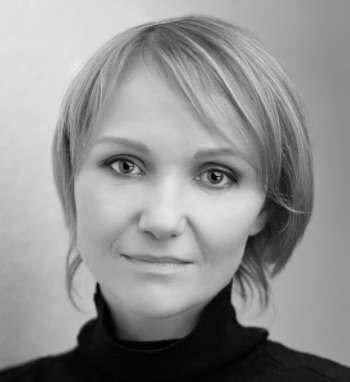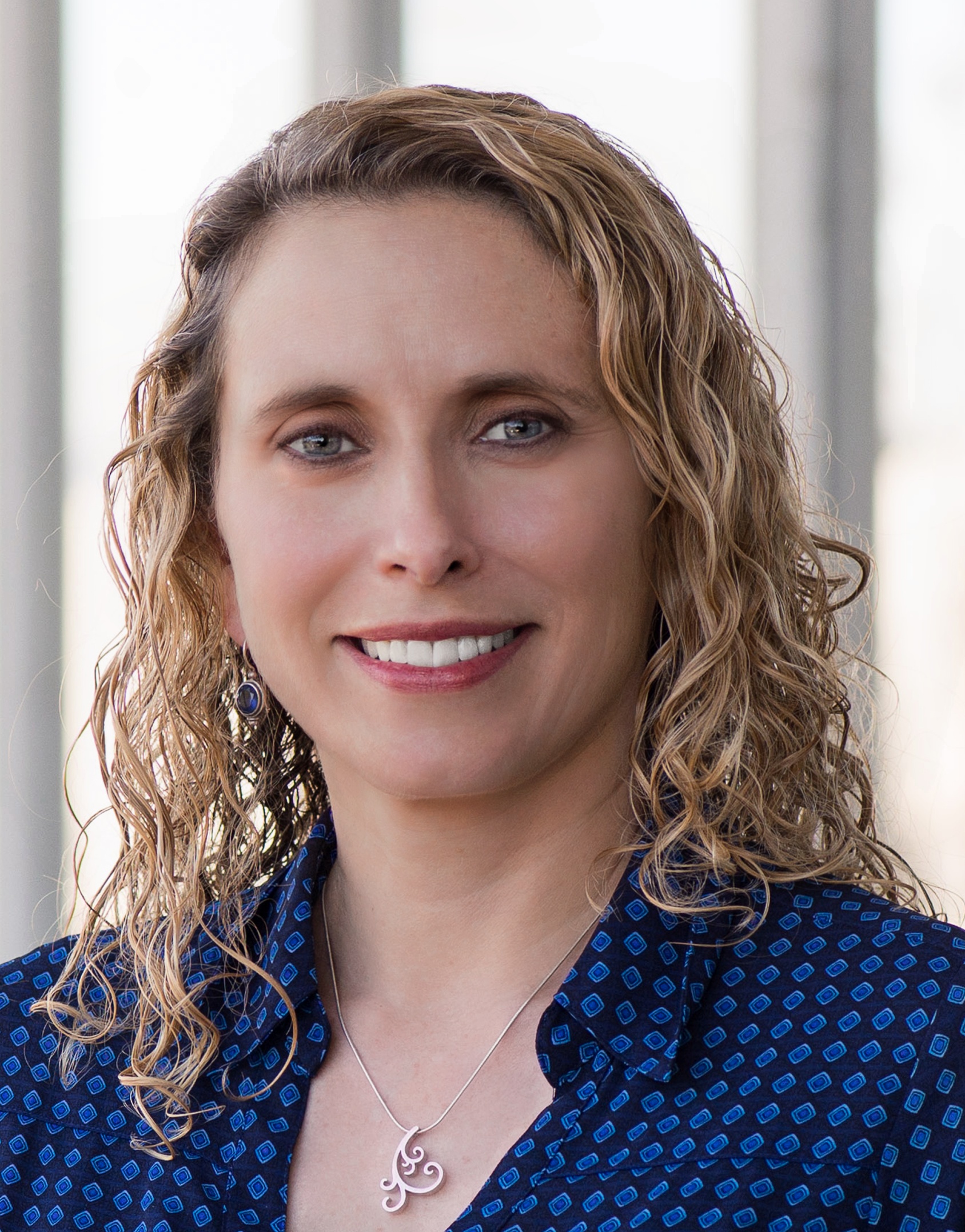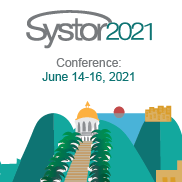Full Program
Keynote Talks
Keynote #1:
Tackling synchronization challenges in large scale systems
Shan Lu (University of Chicago)
[Abstract], [Speaker Bio]
Abstract:
Synchronizations are fundamental to the correctness and performance of concurrent software systems. Unfortunately, correctly identifying and using synchronizations is extremely difficult for both developers and tools in modern software systems due to the various forms of concurrency and various types of synchronization mechanisms. This talk briefly discusses the history of tackling synchronization challenges in system community and presents our adventure in analyzing complicated industry concurrent systems. In collaboration with Microsoft researchers, this adventure led to a fault-injection tool TSVD that exposed more than 1000 synchronization bugs in Azure code (SOSP’19 Best Paper) and an unsupervised inference tool SherLock that automatically identifies synchronization operations in modern C# programs (ASPLOS'21).
Bio:
 Shan Lu is a Professor in the Department of Computer Science at the University of Chicago.
She received her Ph.D. at University of Illinois, Urbana-Champaign, in 2008. She was the
Clare Boothe Luce Assistant Professor of Computer Sciences at University of Wisconsin,
Madison, from 2009 to 2014. Her research focuses on software reliability and efficiency,
particularly detecting, diagnosing, and fixing functional and performance bugs in large
software systems.
Shan is an ACM Distinguished Member (2019 class), an Alfred P. Sloan Research Fellow (2014),
a Distinguished Educator Alumnus from Department of Computer Science at University of
Illinois (2013), and NSF Career Award recipient (2010).
Shan Lu is a Professor in the Department of Computer Science at the University of Chicago.
She received her Ph.D. at University of Illinois, Urbana-Champaign, in 2008. She was the
Clare Boothe Luce Assistant Professor of Computer Sciences at University of Wisconsin,
Madison, from 2009 to 2014. Her research focuses on software reliability and efficiency,
particularly detecting, diagnosing, and fixing functional and performance bugs in large
software systems.
Shan is an ACM Distinguished Member (2019 class), an Alfred P. Sloan Research Fellow (2014),
a Distinguished Educator Alumnus from Department of Computer Science at University of
Illinois (2013), and NSF Career Award recipient (2010).
Her co-authored papers won Google Scholar Classic Paper 2017, Best Paper Awards at
ACM-SIGOPS SOSP 2019, USENIX OSDI 2016 and USENIX FAST 2013, 3 ACM-SIGSOFT Distinguished
Paper Awards at ICSE 2019, ICSE 2015 and FSE 2014, an ACM CHI Honorable Mention Award 2021,
an ACM-SIGPLAN Research Highlight Award at PLDI 2011, and an IEEE Micro Top Picks in ASPLOS
2006. Shan is also a member of the informal ASPLOS Hall of Fame.
Shan currently serves as the Chair of ACM-SIGOPS (2019 --), Member-at-Large of ACM SIG Governing
Board Executive Committee (2020 -- 2022), and the Associate Editor for IEEE Computer Architecture
Letters. She serves/served as the technical program co-chair for USENIX Symposium on Operating
Systems Design and Implementation (OSDI) in 2020, USENIX Annual Technical Conference (ATC) in 2015,
and ACM Asia-Pacific Systems Workshop (APSys) in 2018.
Keynote #2:
Disaggregated * Meets Near-Data Processing
Alexandra Fedorova (UBC)
[Abstract], [Speaker Bio]
Abstract:
Storage. Memory. Processing. We often think about them as separate or even siloed. We have benchmarks and even entire conferences dedicated to each. The disaggregated trend seems to pull them even further apart: over a decade we have been using disaggregated storage and disaggregated memory seems to be the new hot kid on the block. At the same time there is an opposing trend that blends these technologies together: persistent memory erases boundaries between storage and memory, near-data processing brings processing closer to either memory or storage. The thesis of this talk is that the blending and disaggregation are not actually opposing, but can act cooperatively to support each trend. I will discuss our experience with new commercial Processing-in-Memory (PIM) architecture that was built and integrated into off-the-shelf servers, exploring ideas around using it in the context of disaggregated memory.
Bio:
 Dr. Alexandra Fedorova received her PhD from Harvard in 2006,
where she had an honor to work under the supervision of Margo
Seltzer on her thesis Operating System Scheduling for
Multicore Processors.
Dr. Alexandra Fedorova received her PhD from Harvard in 2006,
where she had an honor to work under the supervision of Margo
Seltzer on her thesis Operating System Scheduling for
Multicore Processors.
During her PhD she interned at Sun Microsystems Labs, where
she contributed to development of the Niagara processor simulator
and experimented with adopting transactional memory in real
applications.
Between 2006 and 2015 she was an Assistant and then Associate
professor at the School of Computing Science at SFU.
She joined the ECE department at the University of British
Columbia in 2015. Her research focuses broadly on systems,
and she is especially interested in memory management and solving
the "memory wall" problem.
She is a recipient of the Anita Borg Early Career award and of
the Alfred P. Sloan research fellowship.
Keynote #3:
Memory Disaggregation: Think Outside the Box
Kim Keeton
[Abstract], [Speaker Bio]
Abstract:
Data growth has turned memory into a major bottleneck. To cope with this bottleneck, memory-hungry applications are increasingly taking advantage of memory "outside the box" -- leveraging advances in memory technologies and networking to increase their effective memory capacity. Disaggregated, or "far", memory is attached to the network and can be accessed by remote processors without mediation from a local processor. Disaggregated memory architectures provide benefits to applications beyond traditional scale out environments, such as independent scaling of compute and memory resources, and an independent failure model that leaves data resident in the disaggregated memory unaffected by compute node failures. Some hurdles remain, however: although network bandwidth is improving, network latency still dominates the latency of disaggregated memory, leading to challenges to achieve good performance.
In this talk, I will outline the benefits that disaggregated memory architectures provide for applications. I will provide highlights from recent work to manage disaggregated memory-resident data in a performant fashion, through clever data structure design, intelligent caching, and efficient sharing, potentially leveraging minimal memory-side acceleration. I will also discuss how disaggregated memory can be exploited to improve application fault tolerance, by borrowing and adapting ideas from task-based programming models, concurrent programming techniques, and lock-free data structures.
Bio:
 Dr. Kimberly Keeton's multi-decade research career has focused on
the challenges of exploiting emerging technologies and making data
management systems easier to design, administer and use.
Dr. Kimberly Keeton's multi-decade research career has focused on
the challenges of exploiting emerging technologies and making data
management systems easier to design, administer and use.
Her recent work focuses on data management for disaggregated persistent
memory architectures. Her research has led to numerous publications and
patents and has contributed to multiple products, including the Express
Query metadata database for HPE's StoreAll archiving solution.
Kim has served as Program Co-Chair of OSDI, EuroSys, SIGMETRICS, FAST,
and DSN/PDS.
She received her PhD and MS in Computer Science from UC Berkeley, and
her BS in Computer Engineering and Engineering and Public Policy from
Carnegie Mellon.
She is a Fellow of the ACM and the IEEE.
Program
Day 1: Monday, June 14, 2021
San Francisco
(PDT) |
New-York
(EDT) |
Green-wich
(GMT) |
Israel
(IDT) |
China
(CST) |
|
| 07:00 |
10:00 |
14:00 |
17:00 |
22:00 |
Opening Remarks |
| 07:10 |
10:10 |
14:10 |
17:10 |
22:10 |
Keynote #1: Shan Lu |
| 08:10 |
11:10 |
15:10 |
18:10 |
23:10 |
Session 1: Memory |
| 08:50 |
11:50 |
15:50 |
18:50 |
23:50 |
Short Break |
| 09:00 |
12:00 |
16:00 |
19:00 |
00:00 |
Session 2: Key-Value Stores |
| 10:00 |
13:00 |
17:00 |
20:00 |
01:00 |
Short Break |
| 10:10 |
13:10 |
17:10 |
20:10 |
01:10 |
Poster Session |
| 11:00 |
14:00 |
18:00 |
21:00 |
02:00 |
Day 1 Adjournment |
Day 2: Tuesday, June 15, 2021
San Francisco
(PDT) |
New-York
(EDT) |
Green-wich
(GMT) |
Israel
(IDT) |
China
(CST) |
|
| 07:00 |
10:00 |
14:00 |
17:00 |
22:00 |
Session 3: NVM Part 1 |
| 07:40 |
10:40 |
14:40 |
17:40 |
22:40 |
Short Break |
| 07:50 |
10:50 |
14:50 |
17:50 |
22:50 |
Session 4: Storage |
| 09:30 |
12:30 |
16:30 |
19:30 |
00:30 |
Short Break |
| 09:40 |
12:40 |
16:40 |
19:40 |
00:40 |
Session 5: Security |
| 10:40 |
13:40 |
17:40 |
20:40 |
01:40 |
Keynote #2: Sasha Fedorova |
| 11:40 |
14:40 |
18:40 |
21:40 |
02:40 |
Day 2 Adjournment |
Day 3: Wednesday, June 16, 2021
San Francisco
(PDT) |
New-York
(EDT) |
Green-wich
(GMT) |
Israel
(IDT) |
China
(CST) |
|
| 07:00 |
10:00 |
14:00 |
17:00 |
22:00 |
Session 6: NVM Part 2 |
| 07:40 |
10:40 |
14:40 |
17:40 |
22:40 |
Short Break |
| 07:50 |
10:50 |
14:50 |
17:50 |
22:50 |
Session 7: Highlights |
| 09:30 |
12:30 |
16:30 |
19:30 |
00:30 |
Short Break |
| 09:40 |
12:40 |
16:40 |
19:40 |
00:40 |
Session 8: Potpourri |
| 10:20 |
13:20 |
17:20 |
20:20 |
01:20 |
Keynote #3: Kim Keeton |
| 11:20 |
14:20 |
18:20 |
21:20 |
02:20 |
Closing Remarks |
| 11:30 |
14:30 |
18:30 |
21:30 |
02:30 |
Conference Adjournment |
Sessions
Session 1: Memory
Session Chair: Sudarsun Kannan (Rutgers University)
To Move or Not to Move? - Page Migration for Irregular Applications in Over-subscribed GPU Memory Systems with DynaMap
Chia-Hao Chang, Adithya Kumar, and Anand Sivasubramaniam (The Pennsylvania State University)
Lossless Instruction-to-Object Memory Tracing in the Linux Kernel
Nick Roessler (University of Pennsylvania); Yi Chen, Lucas Atayde, and Peiru Yang (Rice University); Imani Palmer (Null Hat Security); Lily Grey and Nathan Dautenhan (Rice University)
Session 2: Key-Value Stores
Session Chair: Arpan Gujarati (University of British Columbia, Vancouver
KVRAID: High Performance, Write Efficient, Update Friendly Erasure Coding Scheme for KV-SSDs
Mian Qin, Narasimha Reddy, and Paul Gratz (Texas A&M University); Rekha Pitchumani and Yang Seok Ki (Samsung)
Fine-grained Control of Concurrency within KV-SSDs
Janki Bhimani (Florida International University); Jingpei Yang (Samsung Semiconductor USA); Ningfang Mi (Northeastern University); Changho Choi (Samsung Semiconductor, USA); Manoj Saha (Florida International University)
KVCG: A Heterogeneous Key-Value Store for Skewed Workloads
JdePaul Miller, Jacob Nelson, Ahmed Hassan, and Roberto Palmieri (Lehigh University)
Session 3: NVM Part 1
Session Chair: Sanidhya Kashyap (EPFL)
A Study of Persistent Memory Bugs in Linux Kernel
Duo Zhang, Om Rameshwar Gatla, Wei Xu, and Mai Zheng (Iowa State University)
UniHeap: Managing Persistent Objects Across Managed Runtimes for Non-Volatile Memory
Daixuan Li, Benjamin Reidys, and Jinghan Sun (UIUC); Thomas Shull (University of Illinois Urbana Champaign); Josep Torrellas (University of Illinois Urbana-Champaign); Jian Huang (UIUC)
Session 4: Storage
Session Chair: Huaicheng Li (CMU)
BDUS: Implementing Block Devices in User Space
Alberto Faria, Ricardo Macedo, João Paulo, and José Pereira (INESC TEC & University of Minho)
IMG-DNA: Approximate DNA Storage for Images
Bingzhe Li (Oklahoma State University); Li Ou (University of Minnesota, Twin Cities); David H.C. Du (University of Minnesota)
The Case for Adding Privacy-Related Offloading to Smart Storage
Claudiu Mihali (Aalto University, Finland); Anca Hangan and Gheorghe Sebestyen (UT Cluj-Napoca, Romania); Zsolt István (ITU Copenhagen, Denmark)
Reducing write amplification in flash by death-time prediction of logical block addresses
Chandranil Chakraborttii (University of California Santa Cruz); Heiner Litz (University of California, Santa Cruz)
Dissecting Self-Describing Data Formats to Enable Advanced Querying of File Metadata (short paper)
Kira Duwe and Michael Kuhn (Otto-von-Guericke University Magdeburg (OVGU))
Session 5: Security
Session Chair: Aastha Mehta (University of British Columbia, Vancouver)
Dealing with (Some of) the Fallout from Meltdown
Nadav Amit and Michael Wei (VMware Research); Dan Tsafrir (Technion & VMware Research)
S2Dedup: SGX-enabled Secure Deduplication
Mariana Miranda and Tânia Esteves (INESC TEC & U. Minho); Bernardo Portela (NOVA LINCS & U. Porto); João Paulo (INESC TEC & U. Minho)
Length Preserving Compression – Marrying Encryption with Compression
Doron Chen, Michael Factor, Ronen Kat, and Danny Harnik (IBM Research); Eliad Tsfadia (Tel Aviv University and Google)
Session 6: NVM Part 2
Session Chair: Aishwarya Ganesan (VMware Research)
HeuristicDB: A Hybrid Storage Database System Using a Non-Volatile Memory Block Device
Jinfeng Yang (University of Minnesota at Twin Cities); Bingzhe Li (Oklahoma State University); David Lilja (University of Minnesota at Twin Cities)
SIMD-MIMD Cocktail in a Hybrid Memory Glass: Shaken, not Stirred
Mikhail Zarubin, Patrick Damme, Alexander Krause, Dirk Habich, and Wolfgang Lehner (TU Dresden)
Session 7: Highlights
Session Chair: Ram Alagappan (VMware Research)
EvenDB: Optimizing Key-Value Storage for Spatial Locality
Eran Gilad, Edward Bortnikov, Anastasia Braginsky, Yonatan Gottesman, Eshcar Hillel (Yahoo Research); Idit Keidar (Yahoo Research, Technion); Nurit Moscovici (Outbrain); Rana Shahout (Technion)
MAD-HTLC: Because HTLC is Crazy-Cheap to Attack
Itay Tsabary, Matan Yechieli (Technion, IC3); Alex Manuskin (ZenGo-X); Ittay Eyal (Technion)
Characterizing, Exploiting, and Detecting DMA Code Injection Vulnerabilities in the Presence of an IOMMU
Markuze Alex (Technion); Shay Vargaftik (VMware Research); Gil Kupfer, Boris Pismenny (Technion); Nadav Amit (VMware Research); Adam Morrison (Tel Aviv University); Dan Tsafrir (Technion & VMware Research)
PINT: Probabilistic In-band Network Telemetry
Ran Ben Basat (University College London); Sivaramakrishnan Satyamangalam Ramanathan (University of Southern California); Yuliang Li (Harvard University); Gianni Antichi (Queen Mary University of London); Minlan Yu, Michael Mitzenmacher (Harvard University)
Self-adjusting Advertisement of Cache Indicators with Bandwidth Constraints
Itamar Cohen (Politecnico di Torino); Gil Einziger, Gabriel Scalosub (Ben Gurion University of the Negev, Israel)
Session 8: Potpourri
Session Chair: Prateek Sharma (Indiana University)
JumpGate: Network Connected Acceleration for Data Analytics
Craig Mustard (University of British Columbia and Oracle Labs); Swati Goswami, Niloofar Gharavi, Joel Nider, Ivan Beschastnikh, and Alexandra (Sasha) Fedorova (University of British Columbia)
LIRS2: An Improved LIRS Block Replacement Algorithm
Chen Zhong and Xingsheng Zhao (University of texas at arlington); Song Jiang (University of Texas at Arlington)





 Shan Lu is a Professor in the Department of Computer Science at the University of Chicago.
She received her Ph.D. at University of Illinois, Urbana-Champaign, in 2008. She was the
Clare Boothe Luce Assistant Professor of Computer Sciences at University of Wisconsin,
Madison, from 2009 to 2014. Her research focuses on software reliability and efficiency,
particularly detecting, diagnosing, and fixing functional and performance bugs in large
software systems.
Shan is an ACM Distinguished Member (2019 class), an Alfred P. Sloan Research Fellow (2014),
a Distinguished Educator Alumnus from Department of Computer Science at University of
Illinois (2013), and NSF Career Award recipient (2010).
Shan Lu is a Professor in the Department of Computer Science at the University of Chicago.
She received her Ph.D. at University of Illinois, Urbana-Champaign, in 2008. She was the
Clare Boothe Luce Assistant Professor of Computer Sciences at University of Wisconsin,
Madison, from 2009 to 2014. Her research focuses on software reliability and efficiency,
particularly detecting, diagnosing, and fixing functional and performance bugs in large
software systems.
Shan is an ACM Distinguished Member (2019 class), an Alfred P. Sloan Research Fellow (2014),
a Distinguished Educator Alumnus from Department of Computer Science at University of
Illinois (2013), and NSF Career Award recipient (2010). Dr. Alexandra Fedorova received her PhD from Harvard in 2006,
where she had an honor to work under the supervision of Margo
Seltzer on her thesis Operating System Scheduling for
Multicore Processors.
Dr. Alexandra Fedorova received her PhD from Harvard in 2006,
where she had an honor to work under the supervision of Margo
Seltzer on her thesis Operating System Scheduling for
Multicore Processors.  Dr. Kimberly Keeton's multi-decade research career has focused on
the challenges of exploiting emerging technologies and making data
management systems easier to design, administer and use.
Dr. Kimberly Keeton's multi-decade research career has focused on
the challenges of exploiting emerging technologies and making data
management systems easier to design, administer and use.